Primark has enjoyed a “magnificent year” with profits racing ahead by 30% as it expands its cheap fashion empire abroad, the retailer said on Tuesday.
Its relentless growth was not dented by autumn’s unseasonably warm weather, which has hurt high street rivals as shoppers delayed buying jumpers, jackets and coats.
Last week, Next, one of the UK’s most successful retailers, and SuperGroup issued profits warnings as sales dipped in the warmth of an Indian summer. Primark sales rose 10% in the six weeks from mid-September, following the end of its financial year.
George Weston, chief executive of Primark’s parent company, Associated British Foods (ABF), admitted that the warm weather had hit sales in the first two weeks of September, but said the retailer was not discounting more than last year and had not delayed or cancelled any orders.
“Some of the ranges are selling really well, where we have got the fashion absolutely right. Denim is absolutely flying. Not surprisingly gloves and hats are not,” he said.
Primark’s annual sales are close to £5bn, having risen 17% in the year ending 17 September, mostly as a result of the addition of 1.4m sq ft of shopping space in its expansion abroad. Operating profits soared to £662m, a 30% rise. Excluding new stores, sales were up 4% on last year.
The chain opened its first stores in France last year, with three in the Paris suburbs, one in Marseille and another in Dijon.
Expansion will continue apace in the current financial year, with plans for just under 1m sq ft of new space including new stores in Milton Keynes, York and Carlisle as well as across Europe.
The fashion retailer, which operates in nine countries, plans to open its first store in the US, an outlet in central Boston, at the end of 2015.
Primark’s heady pace of expansion has bolstered ABF, which is grappling with lower sugar prices that have reduced profits in its core business. Earnings from sugar fell 22% to £2bn last year, slashing profits by 54% to £189m. World sugar prices are falling amid more competition in Europe as quotas are phased out.
The strong pound also weighed on ABF’s earnings and profits. The group reported revenues of £12.9bn for its last financial year, down by 3% in real terms, although up 1% when based on the average exchange rate. Basic earnings per share rose 30% to 96.5p and pretax profits were up 18% to £1.02bn.
Weston said all parts of its business – which spans groceries, agriculture, ingredients and retail – had outperformed last year. “Primark’s trading success and significant expansion delivered another magnificent year,” he added.
Retail analysts said Primark’s performance was especially impressive as the retailer defies conventional wisdom by not offering online shopping, focusing instead on bricks-and-mortar stores.
“With no digital channels to speak of, strategically spread physical representation remains absolutely essential,” said Anusha Couttigane, senior consultant at analysts Conlumino. She believes that changing perceptions have also helped.
“Shopping at Primark is no longer something to be whispered about,” she said. “Improved perceptions of its quality and fashionability have helped Primark to break through the fashion snobbery.”
Shoppers have not punished Primark for its links to the Rana Plaza factory building, which collapsed in Bangladesh last year killing more than 1,000 people. Weston said the company would complete compensation payments by Christmas, with remaining payments delayed while the most vulnerable families were given advice and support over how to manage large lump-sum payouts. Since the disaster, Primark has assessed the structural strength of all its suppliers’ buildings in Bangladesh and will now continue that process elsewhere starting with India, Pakistan and Cambodia.
‘Twosie’ trend takes off
Primark is backing the “twosie” as this year’s Christmas novelty hit in the UK, just as 2012’s craze the onesie has crossed the Channel in a late surge of popularity on the continent.
George Weston, chief executive of the retailer’s parent group Associated British Foods, said the head-to-toe matching outfits, which sit somewhere betweenpyjamas and a tracksuit were already selling well. “The twosie will be important,” he said, echoing predictions from supermarket Sainsbury’s and other retailers searching for a replacement for the onesie fervour after the garment was favoured by the likes of Harry Styles, Cara Delevingne and Justin Bieber. “Onesies still have a way to run in Europe. The rising hit in the UK will be twosies, although a lot of people will be buying onesies and they will be even more spectacular with heads, tails and maybe lights,” Weston said.
He predicted that Christmas jumpers, last year’s novelty festive hit, would continue to be popular but would be more ornate, featuring music and flashing lights. Sarah Butler
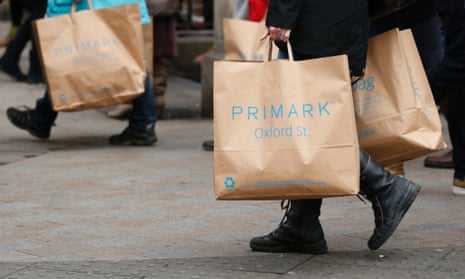


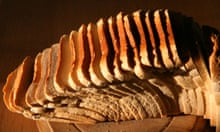
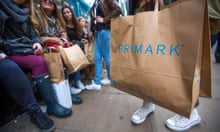
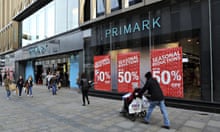
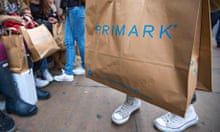

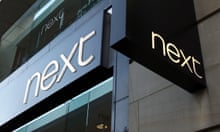
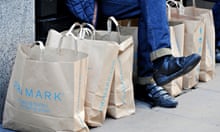
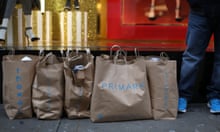
Comments (…)
Sign in or create your Guardian account to join the discussion